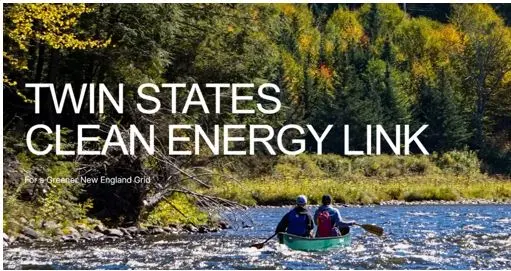

The U.S. Department of Energy (DOE) announced Twin States Clean Energy Link, National Grid's proposed transmission project to support New England's climate, clean energy, and energy security goals, has been selected as one of three projects nationwide to receive investment through the U.S. Bipartisan Infrastructure Law's Transmission Facilitation Program. The project has received unprecedented support from community members and key stakeholders across New Hampshire, Vermont, and across New England.

Through DOE's Transmission Facilitation Program, a $2.5 billion revolving fund to help overcome the financial hurdles associated with upgrading and building new, large-scale transmission lines, DOE is entering into capacity contract negotiations with three interregional transmission line projects that will strengthen grid resilience and reliability and enable the addition of more clean energy resources to the grid. Through capacity contracts, DOE will commit to purchasing a percentage of the total proposed capacity of the eligible transmission line. By offering capacity contracts, DOE increases the confidence of additional investors, encourages additional customers to purchase transmission line capacity, and reduces the overall risk for project developers. Therefore, Twin States remains subject to finalizing contractual arrangements and investment plans. National Grid will continue to engage with DOE in the coming months on various aspects of the project to identify the best path forward through the Transmission Facilitation Program and secure maximum benefits to our communities and the region.
Twin States will deliver clean energy from Canada, including hydropower, to New England to support the region's carbon reduction goals and increase the supply of affordable clean energy. As a bi-directional line, Twin States will enable clean energy producers in New England, such as offshore wind, to export excess capacity to Quebec during times of lower domestic demand, providing a critical boost to the region's clean energy economy.
The project is projected to lower costs for customers across New England, creating more than $8.3 billion in wholesale energy market cost savings over the first twelve years of operation alone, according to an independent market assessment based on current project estimates. The proposal is unique in that it utilizes roadway burial and existing transmission corridors in Vermont and New Hampshire to deliver 1,200 MW of clean energy directly to where it's needed most, while unlocking new renewable development potential in the region.
Twin States is projected to generate hundreds of millions of dollars in new property tax revenues to host state cities and towns through which the line passes. It is also projected to contribute millions more in lease payments to Vermont and New Hampshire for underground burial of the lines along state roadways.
In addition, as part of the consideration for the project, National Grid and Citizens Energy Corporation are assembling an innovative $260 million community benefits program, of which at least 40% will be dedicated to disadvantaged communities throughout New England. The project is expected to create 1,200 well-paying jobs during construction. The reduction of electricity bills for customers and businesses across New England is expected to create significant economic growth, generating an estimated average of 3,700 jobs per year across the region.
National Grid is working closely with communities and local economic development partners to understand how the project's benefits program can best support local needs. As part of this process, National Grid has held dozens of public presentations, open houses in route communities in both states and other listening sessions to understand how Twin States can maximize its benefits for the region, beyond creating jobs, lowering energy costs, and combatting climate change through reducing our dependence on natural gas to generate electricity.

